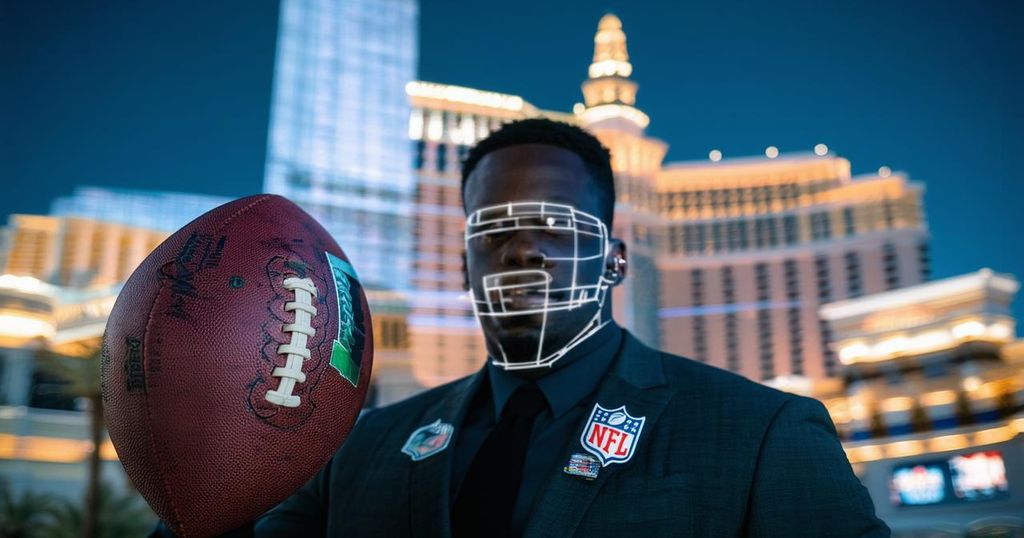Las Vegas police are resisting the NFL’s facial recognition access policy, citing biometric data concerns. The NFL is preparing to implement a facial authentication system at all stadiums. This pushback may indicate broader issues across other NFL teams, compounded by public protests against facial recognition technologies in sporting venues.
The Las Vegas police have officially pushed back against the NFL’s new facial recognition policy regarding access management at NFL stadiums. Concerns have been raised about the collection of biometric data from officers, leading the Las Vegas Police Protective Association (LVPPA) to insist that their officers will only enter with wristbands, avoiding any form of biometric verification. Steve Grammas, the LVPPA President, emphasized this decision ahead of a preseason game at Allegiant Stadium, stating, “They didn’t like it, but they didn’t have a choice. We told them what we were going to do.” In response, the NFL has introduced a facial authentication system across all 30 stadiums, utilizing Wicket’s technology in tandem with Accredit Solutions for credential verification to streamline access for authorized personnel. However, the pushback from law enforcement in Las Vegas could signify potential wider dissent across NFL teams, with other cities closely monitoring the situation. The controversy becomes more complex against the backdrop of widespread adoption of facial recognition technology by law enforcement, which raises questions about consistency in its application. An investigative report highlighted that the Las Vegas police conducted nearly 1,000 facial recognition searches in 2019, predominantly using low-quality images, while the NFL seeks to implement a more secure verification process. Public sentiment also remains skeptical about the use of facial recognition in stadiums, as demonstrated by protests against similar technologies used by Major League Baseball. Advocacy groups like Fight for the Future argue that such systems endanger user privacy, leading to mass data collection without proper safeguards. Wicket, the technology provider, maintains that their service is fully opt-in and compliant with privacy standards, with assurances of data security and minimal risk of misuse. Discussions around these topics will continue at the upcoming Identity Week conference, aiming to clarify the responsibilities of organizations implementing biometric technology in public venues.
The NFL’s decision to employ facial recognition technology reflects a broader trend in various sectors, including sports and law enforcement, where biometric systems are being adopted for enhanced security measures. However, the intersection of privacy concerns and security measures has generated controversy, particularly when public access venues like stadiums are involved. With police departments and public advocacy groups taking a stand against seemingly pervasive surveillance technologies, there is a growing dialogue around the safety, ethical implications, and the necessity of these systems in society. The pushback from the Las Vegas police illustrates a critical response to data collection practices that may infringe upon personal privacy rights and accountability in biometric data handling.
The ongoing debate surrounding the NFL’s facial recognition policy raises fundamental questions about privacy, security, and ethical data collection practices in public settings. The insistence of the Las Vegas police on alternative access methods reflects broader apprehensions about biometric data usage and highlights the complexity of adopting such technologies in environments where personal privacy is paramount. The developments in Las Vegas could signal the start of a significant push against the implementation of facial recognition technology in sports venues, prompting other cities and organizations to reevaluate their policies and practices.
Original Source: www.biometricupdate.com





